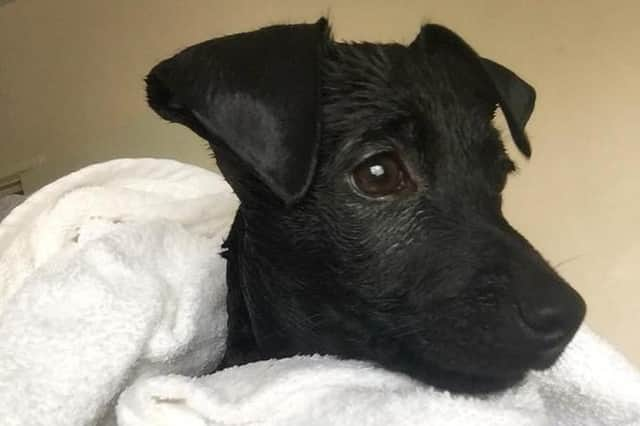These are the symptoms to look out for as deadly cases of parvovirus confirmed in Lancashire


Symptoms include vomiting (watery, slimy, foamy or milky), diarrhoea (often bloody, foul smelling), loss of appetite, listless or depressed attitude, or a dull, glassy eyed stare.
They may include reduced appetite, extreme low energy or fever (your dog may feel hot or cold to the touch).
Advertisement
Hide AdAdvertisement
Hide AdSymptoms come on so quickly that many owners presume their puppy has been poisoned.
Puppies and young adults are at a higher risk and must be vaccinated.
Your dog’s chance of surviving parvovirus is much higher if you take them to the vet as soon as you notice symptoms. Most dogs who receive veterinary treatment quickly survive parvo, but it’s often fatal without treatment.
Sadly, because it’s such a nasty disease, some dogs die from parvo even if they are treated quickly.
Advertisement
Hide AdAdvertisement
Hide AdTreatment involves supporting your dog’s body while it fights the virus because unfortunately, there is no specific medicine to treat parvovirus and antibiotics don’t work because it’s a virus not a bacteria.
*Intensive nursing and feeding. Your dog will need to be carefully nursed in a veterinary hospital. They will be kept clean, warm, fed and hydrated. If your dog can’t or won’t eat, they may need to be fed through a stomach tube. They will also need to be kept away from other dogs to prevent them picking up any other infections or spreading parvovirus.
*A fluid drip. Your dog will need a fluid drip (fluids given straight into the blood stream) to replace the fluids they are losing in their diarrhoea/vomit. Without a drip your dog may becoming dangerously dehydrated.
*Antibiotics. Antibiotics won’t kill parvovirus but are often used to protect against other infections during recovery.
Advertisement
Hide AdAdvertisement
Hide Ad*Other medications. Other medications such as anti-sickness and stomach ulcer medication may be necessary.
If your dog improves enough to return home, you will need to nurse them while they continue recovering, you will need to make sure that they:
*Drink little and often.
*Eat small, bland meals throughout the day (ask your vet which food is best).
*Get lots of rest (walks won’t be necessary until they are feeling much better).
Advertisement
Hide AdAdvertisement
Hide Ad*Have constant access to somewhere they can wee and poo (they will need to go more regularly than usual).
*Are kept away from other dogs and public spaces for a few weeks after they have recovered (this is to protect them from picking up any other illnesses and also to prevent them spreading parvovirus to other dogs, which can happen for a few weeks after they recover).
Unvaccinated dogs (unvaccinated puppies are most at risk) can catch parvovirus from an infected dog, an infected dog poo or anything an infected dog has touched such as a dog lead, food bowl, bedding, human hands and clothes.
Dogs that are lucky enough to survive a parvovirus infection are often infectious for a few weeks after they recover, and the virus can then live in the environment for up to a year.
If you have recently lost a dog to parvovirus, speak to your vet about what steps you need to take before bringing a new dog or puppy into your home.